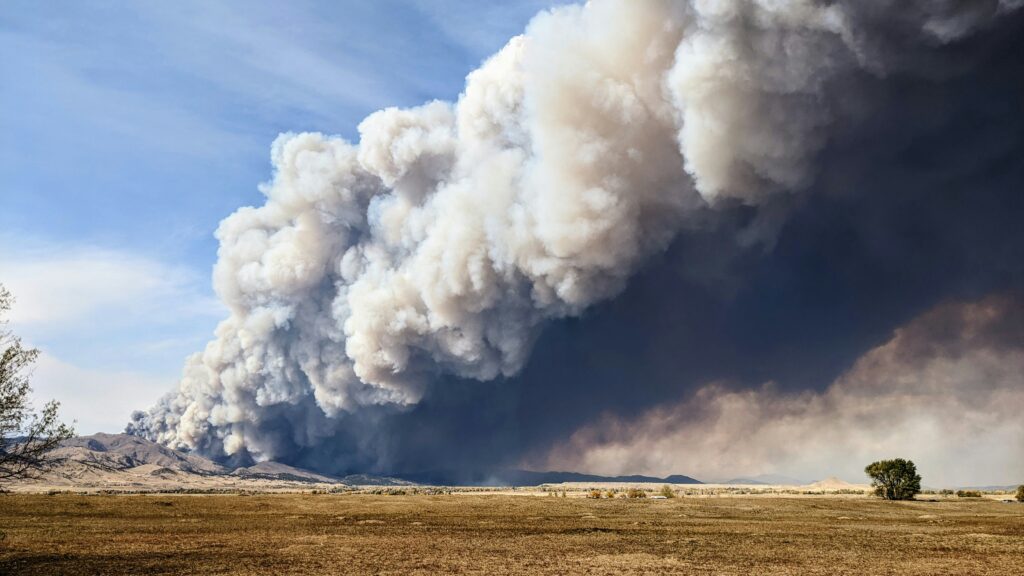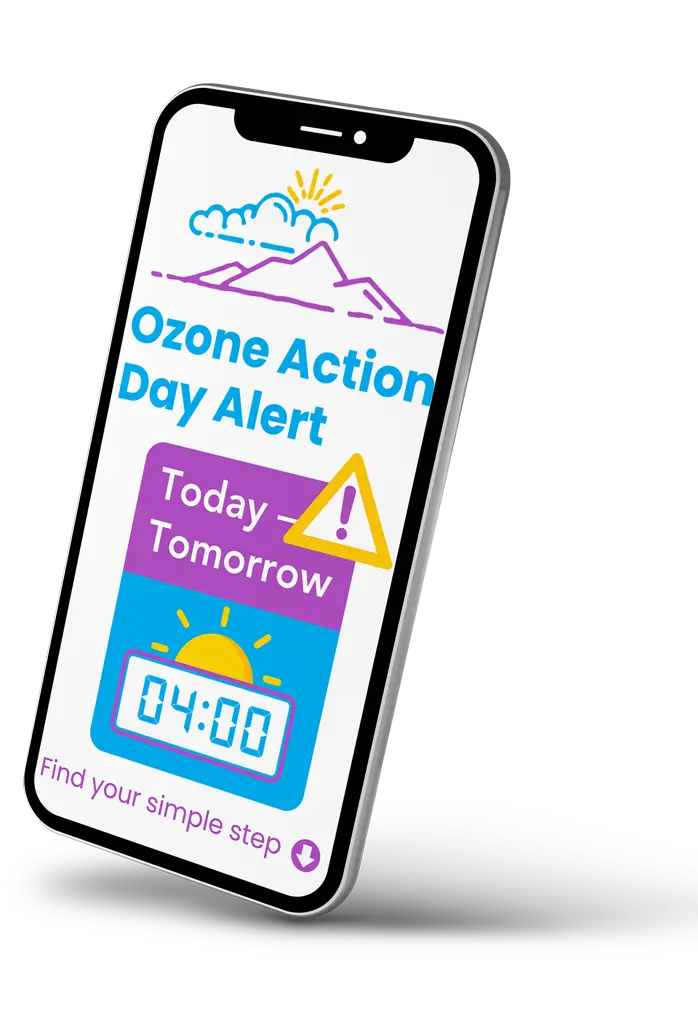Colorado’s gold rush of fall color has arrived! With the gorgeous autumn hues, however, come the droning roar of gas-powered leaf blowers. But did you know that these leaf blowers aren’t just a noise nuisance? They also create incredibly unhealthy air in your neighborhood.
Most gas-powered leaf blowers have a two-stroke engine that burns a combination of gasoline and oil, creating a dirty, smoky exhaust. And unlike a gas-powered car, leaf blowers aren’t equipped with catalytic converters or any other technology that converts most of those pollutants into less harmful substances. That’s why running a gas-powered leaf blower for an hour creates the same amount of emissions as driving a gas-powered car more than a thousand miles, all the way from Denver to Los Angeles!
The dirty air isn’t just gross—it’s bad for your health. Gas-powered leaf blowers emit a mix of carbon monoxide, formaldehyde, nitrogen oxides, benzene, and particulate matter. According to the Respiratory Health Association, even short-term exposure to these air pollutants put you at risk for asthma, COPD, heart attack, and cardiovascular disease. Plus, leaf blowers can also kick pesticides, pollen, dust, and heavy metals in the soil up into the air where you can breathe them.
All of that can stick around your neighborhood’s air, where your kids and dogs are outside playing. Plus, operating a gas-powered leaf blower puts you in close proximity to the exhaust the whole time you’re running one.
These emissions from gas-powered lawn equipment — including leaf blowers — also contribute to higher concentrations of ground-level ozone pollution here in the Colorado Front Range each summer!
Sound bad? Unfortunately, it gets worse. Gas leaf blowers can also expose you to sound above 100 decibels—equivalent to a jet engine or jackhammer. Because hearing loss can occur with exposure to noise exceeding 85 decibels, OSHA requires workers exposed to these decibel levels to have access to hearing safety devices.
So what can you do when the neighborhood trees start dropping piles of leaves in your yard?
- One approach is to “Leave the leaves” because they provide important habitat to help pollinators and other insects and birds over the winter months.
- If you’re physically able to, you can rake the leaves. This low-tech solution can be a workout, though, so only rake leaves if your back and heart health allow for this activity. You can make the work lighter by taking it slow and only raking leaves when they’re dry, rather that wet and heavy.
- Upgrading to a modern electric or plug-in leaf blower is a cleaner option than gas, that is also much quieter equipment to operate! Your ears—and your next-door neighbors—will thank you.
How to get a 30% discount on an electric leaf blower in Colorado
Thanks to a law that went into effect in 2024, Coloradans can get a 30% point of sale discount on electric lawn mowers, leaf blowers, trimmers, and even snow blowers at participating retailers statewide. Unlike a rebate, this point-of-sale discount is one you can get immediately when you buy an electric leaf blower — no need to get a coupon or apply for the discount!
But act fast! This discount only runs for one more year, through Dec. 31, 2026.
You’ll have to buy from one of many participating retailers across the state, so it’s best to call the store ahead of time to confirm that they’re participating in the program.
Ready to upgrade? Take a look at the Colorado Public Interest Research Group’s list of participating lawn and garden retailers.

Jenn Fields
Communications Contributor
Regional Air Quality Council




